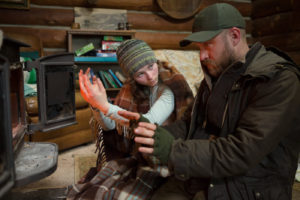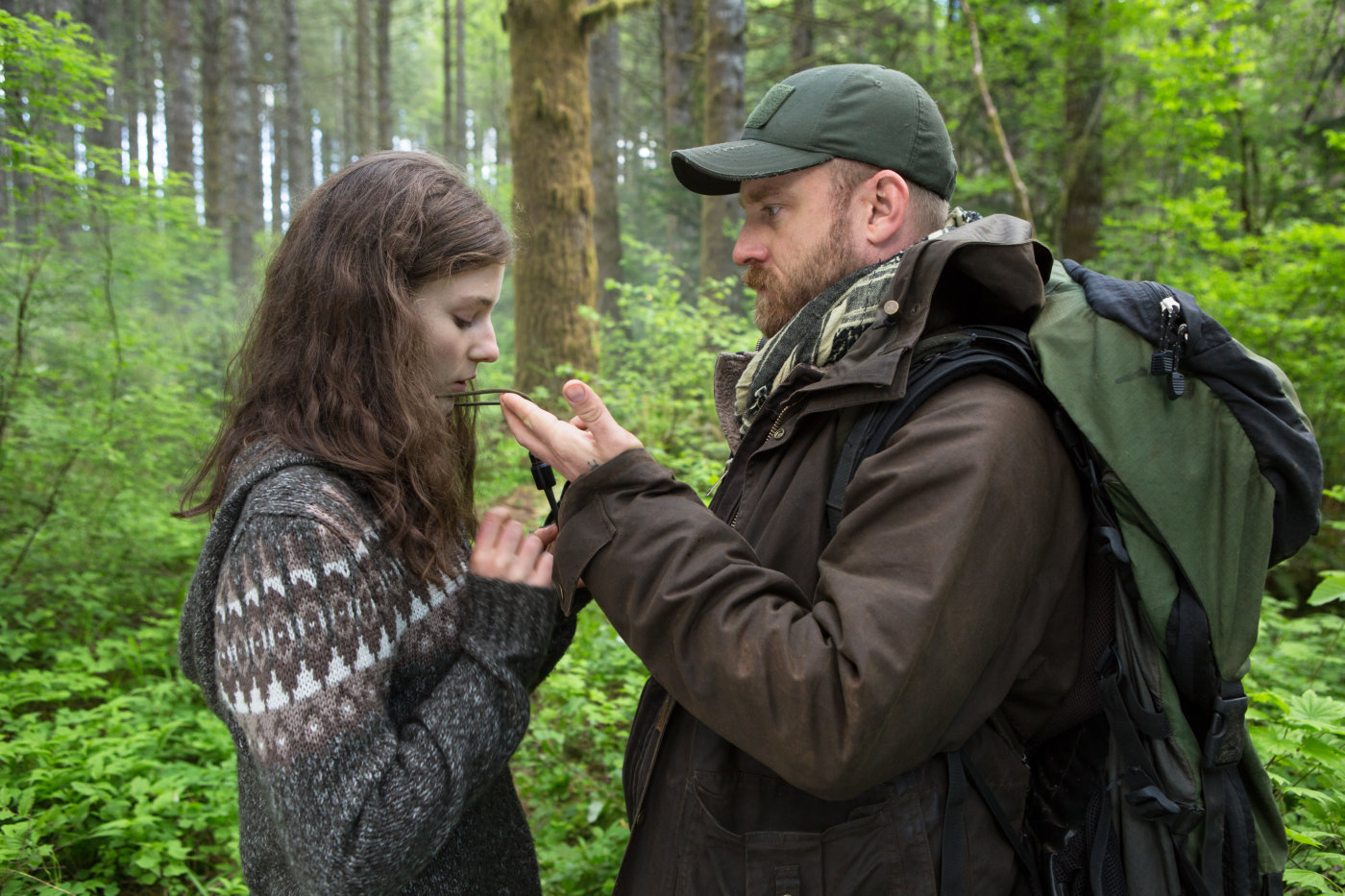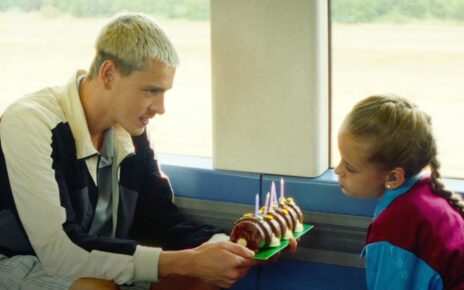Posttraumatic stress disorder (PTSD) is a horrible thing; I wouldn’t wish it upon anyone. In today’s film, PTSD for one veteran has taken the form of ultimate introversion. This is the kind of introversion that makes one live in a public park. The good news is this is the Pacific Northwest, where public parks are green and lush and water-filled forever (or at least until climate change wrecks the place); the bad news is he’s got a daughter.
We have to imagine how Will (Ben Foster) got to the point of a permanent camping trip. He’s a widower with a teenage daughter, Tom (Thomasin McKenzie). Once upon a time (we assume), Will and wife and Tom all lived in a house together. The movie cheats us of the progression to woods-life; it also cheats us of Tom’s puberty – either that or the adult-sized girl has yet to hit puberty, which seems unlikely. Still, Will and Tom live in a tent and survive (mostly) from their surroundings; resourceful as Will is, I’d be fairly surprised if he knew how to derive feminine products from nature. Best dad ever! The duo does have an income; it comes from Will selling his VA meds to junkies. It’s all cool so long as these two Leave No Trace. The one thing Will dreads above all else is intervention: he and Tom practice escape drills like every day is 9/11.
There isn’t a movie without intervention, of course, and the picture gives us a much better idea of who Will and Tom are once wrenched from their woods. A huge peculiarity is the notion that Tom, who has never known house life or creature comforts, adapts far more easily to indoor and community life. Everywhere people are gives Will stress. This is the gift of the war he fought in … that he will never again know communal peace. The most striking part of this movie for me is how odd Will isn’t – or perhaps it’s just my own perception being a fellow introvert; I have no desire to camp, much less live in the woods, but I sure as Hell understand the fears of conversation and lack of personal space. How far away am I from living in the woods and selling my meds to buy groceries?
Leave No Trace is one these films that constantly borders on the edge of “this is normal” and “this is disturbing.” There’s nothing in the film, by itself, that calls Will abusive or mentally ill, but should we as a society be comfortable with a man shunning all and forcing his daughter to do so as well? Over and over, the film questions the value of conformity – if there’s nothing wrong with woodsy Will, why insist on making him townie Will? What is the cost to Tom’s development? Is community an artificial construct that exists entirely for the sake of raising “normal” children? Why is it we bag on home-schooled kids? Is it because we see them as tools of a singular mindset, odd outliers, or are we just jealous because they never had to deal with some of the crap that comes with going to “normal” school? At what point does the lack of societal exposure become child abuse, if, indeed, it ever does?
As a father suffering from a –relatively- unique version of PTSD (do we still call it “PTSD?”), Ben Foster has never been better. This role was almost certainly enabled by Hell or High Water, so another win for the modern Texan shootout.
been better. This role was almost certainly enabled by Hell or High Water, so another win for the modern Texan shootout.
Writer/director Debra Granik was previously responsible for the brilliant and entirely invisible Winter’s Bone; Leave No Trace isn’t quite as good, but not for lack of heart. Like Winter’s Bone, this is a quiet, unassuming, and occasionally powerful film often leaving an unknown teenage coed in the driver’s seat. Bone essentially gave us Jennifer Lawrence; naturally, Thomasin McKenzie’s work here has drawn the logical comparison to Jennifer Lawrence’s. Hence … are we going to be seeing Thomasin McKenzie up for awards before long? Is she going to be matched with some dystopian box office leviathan that will make her a household name? Is it just a matter of time before she’s half of a power couple with some coked-up lead singer and splashing her private matter all over the cover of some cheap tabloid? Let’s hope so.
Living in nature, how clever!
That seems an attuned endeavor
Cuz of his battle scar
Dad takes it too far
Now it’s a walk in the woods, forever
Rated PG, 109 Minutes
Director: Debra Granik
Writer: Debra Granik & Anne Rosellini
Genre: Growing up freaky
Type of being most likely to enjoy this film: Counter-culturists
Type of being least likely to enjoy this film: People who have no patience for those who appear normal and present abnormal



